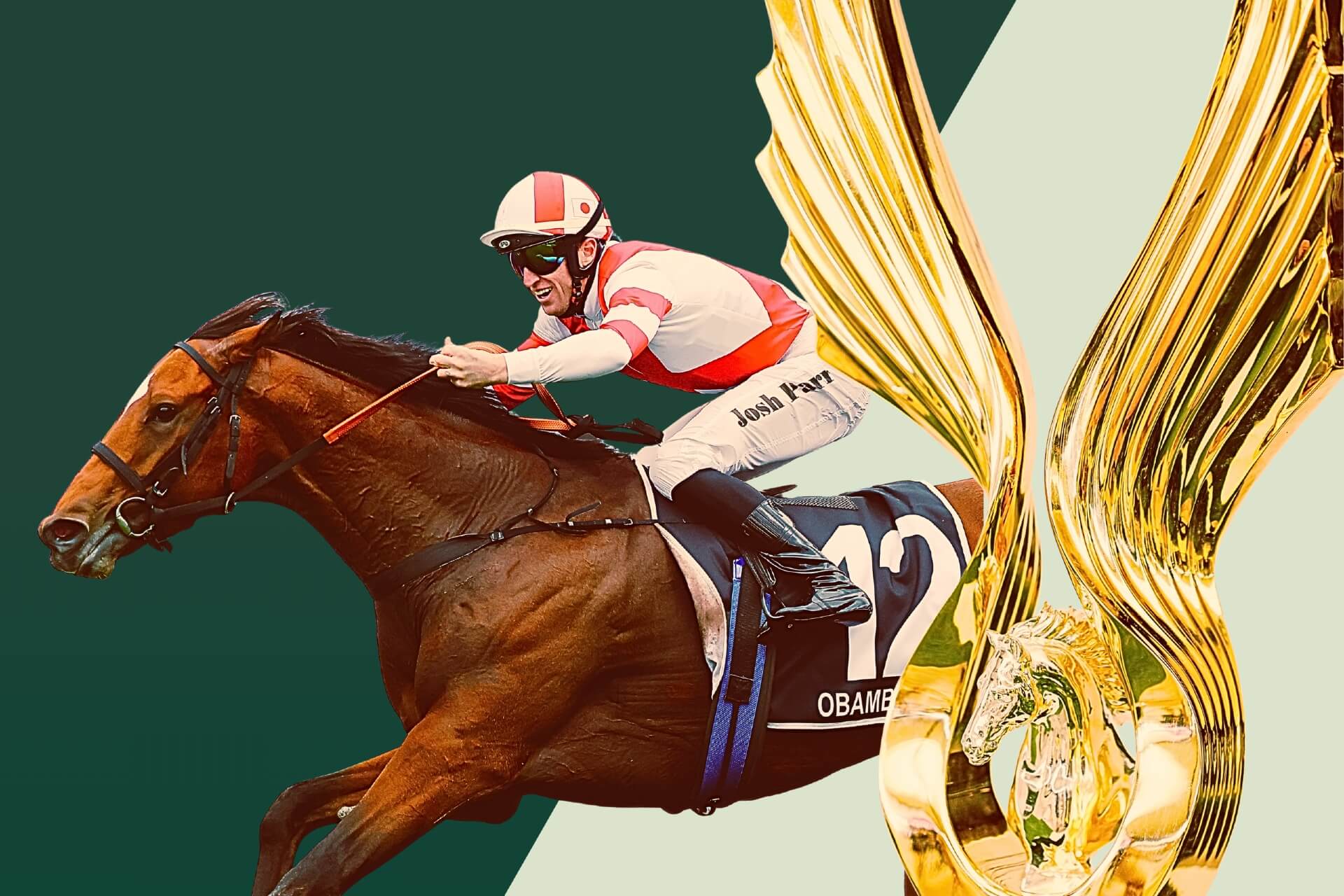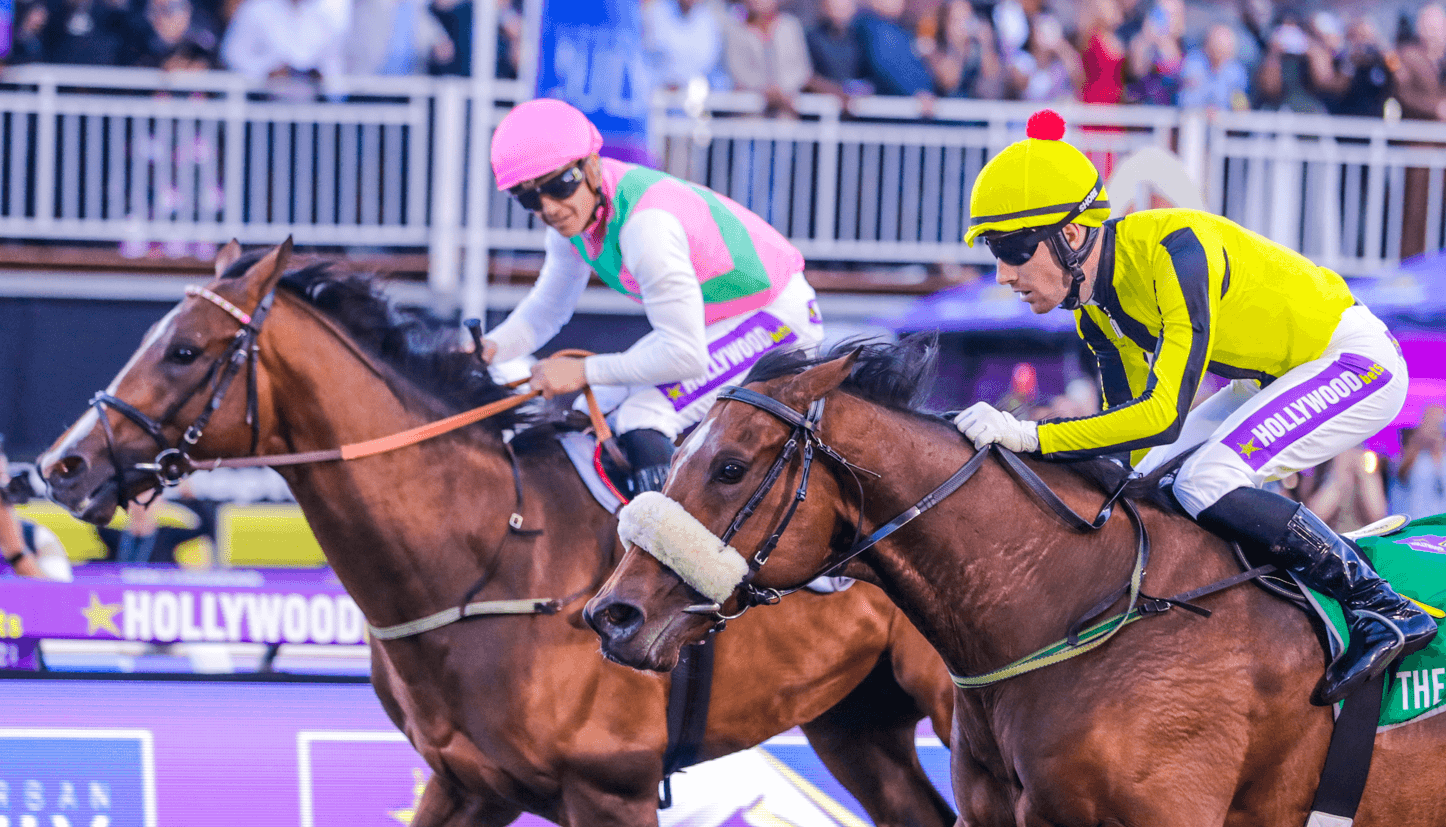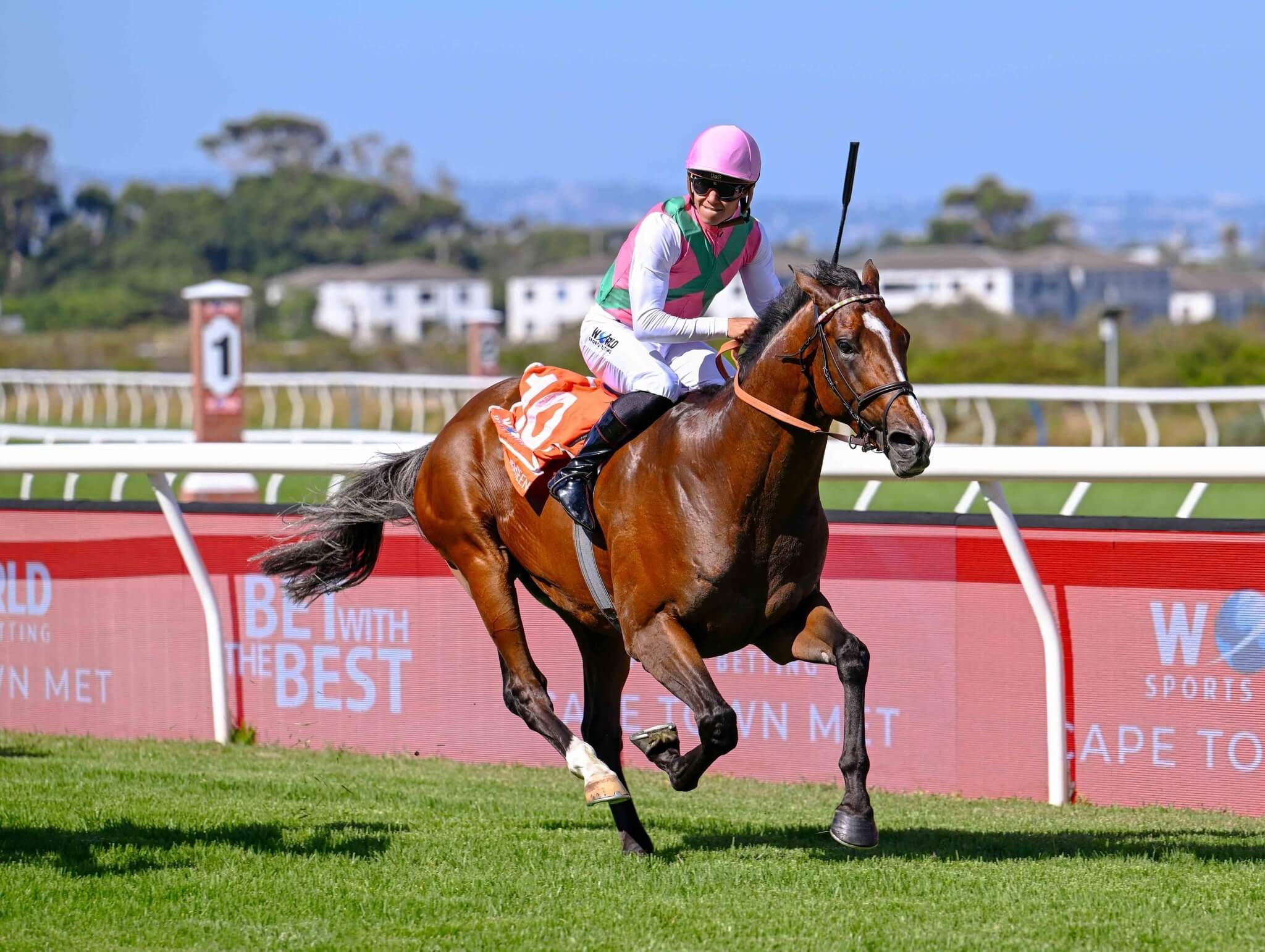‘The Torchbearer’: The Lone Japanese Sire In America
Sunday Silence sparked a momentous shift in Japanese breeding. Nearly three decades later, the United States is yet to embrace the powerful pedigrees he produced, but Gainesway have high hopes for his descendent Karakontie.
‘The Torchbearer’: The Lone Japanese Sire In America
Sunday Silence sparked a momentous shift in Japanese breeding. Nearly three decades later, the United States is yet to embrace the powerful pedigrees he produced, but Gainesway have high hopes for his descendent Karakontie.
12 August, 2024THE QUESTION had barely finished being asked when the laughter emanating from Gainesway stallion director Ryan Norton sufficiently gave away the answer.
When queried about the personality of the most unique resident of the stud barn on the bucolic grounds of Lexington-based Gainesway, the level of affection and amusement in Norton’s voice confirmed that Karakontie is indeed as distinguished in nature as he is in bloodlines. While his handlers are grateful he does not boast the temper of his famous broodmare sire, the legendary Sunday Silence, the 2014 G1 Breeders’ Cup Mile winner nonetheless keeps everyone in his circle on their toes with his desire to be at the center of whatever is drawing attention.

“He is very observant. He wants to know everything about what is going on,” Norton said. “If there is something going on behind him, he wants to face that way. He wants to be in the middle of the action. We’re redoing a barn on the farm, and he knows more about what is happening on that barn than any of the people working on it.
“He’s not tough, he’s just more inquisitive than anything else. He comes into the breeding shed, ready to do his business and ready for the next mare. But he’s not mean or anything, he’s just rambunctious. That’s a nice way to put it.”
The Gainesway stallion roster is not the only place where Karakontie has made it a point to differentiate himself from some illustrious peers. When it comes to his standing in the American breeding landscape, the bay son of Bernstein is quite literally one of one.
Over the last several years, the decades of diligence that have gone into elevating the Japanese breeding program has been showcased across the globe as the likes of Equinox, Panthalassa, Loves Only You, and Ushba Tesoro have captured some of the world’s most prestigious races. And were it not for a couple a noses ahead of him on the wire at Churchill Downs on May 4, the Yoshito Yahagi-trained Forever Young would have added the 2024 G1 Kentucky Derby – the crown jewel of American racing – to the list of international conquests for his home country.

While Japanese-based representation has become commonplace across Thoroughbred racing’s highest echelons, there are still inroads to be made when it comes to having a presence in the American commercial marketplace. The 2024 breeding season saw Karakontie single-handedly hold down the fort for his native land as he was the only Japanese-bred stallion standing in the United States and one of only two from Japan in all North America, joining Adena Springs’ Canadian-based Silent Name (JPN).
There is irony in the fact that Japan’s ongoing ascent up the global ranks came because of American breeders not supporting one of their own. When future Hall of Famer Sunday Silence retired to stud after suffering an injury during his four-year-old season in 1990, the U.S. market showed little interest in the son of Halo with the crooked legs despite his indisputable brilliance and stamina on the track.
That rejection by American breeders resulted in a game-changing opportunity for Shadai Stallion Station, who stood Sunday Silence and witnessed him reshape the once modest Japanese breeding industry. When Sunday Silence passed in August 2002, it marked the loss of an absolute icon, one whose legacy has endured through the success of his best son and fellow influential sire, the late Deep Impact.
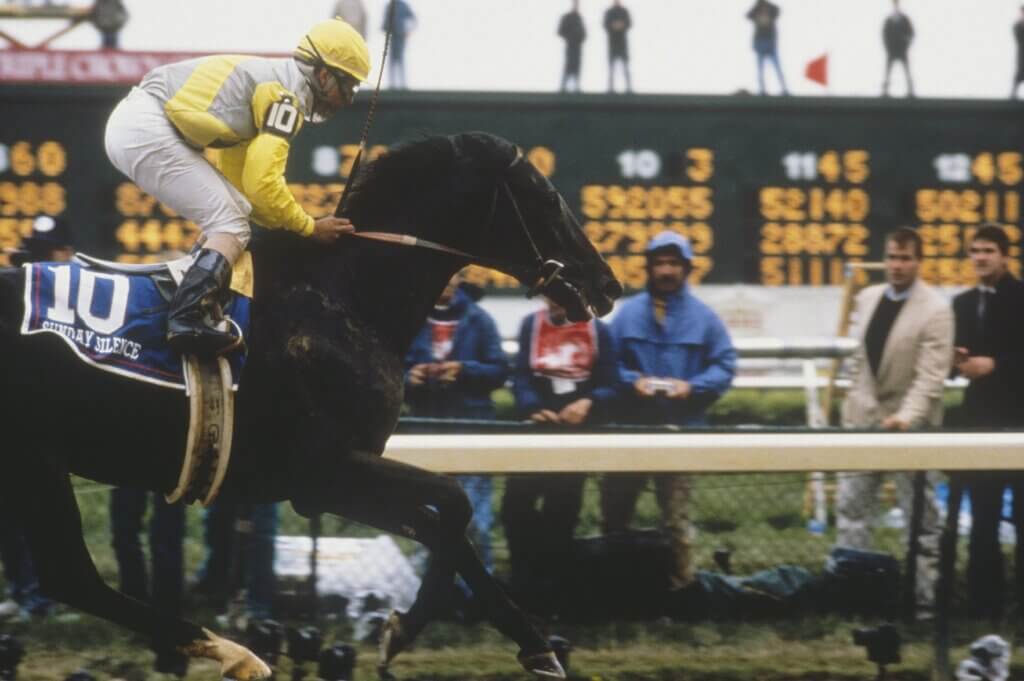
The product of a mating between the Sunday Silence, Japanese-bred mare, Sun Is Up, and multiple Group 3 winner Bernstein, Karakontie did his part to highlight his bloodlines on a global scale as he was a dual Group 1 winner in France prior to taking the Breeders’ Cup Mile in his first U.S. start. Nonetheless, when the Flaxman Holdings homebred entered stud at Gainesway in 2016, those managing his career found themselves having to help convince breeders of the potential he offered in a marketplace that heavily favors dirt speed and precocity.
“I tell people he is our world traveler; born in Japan, raised in Ireland, and then came to the U.S.,” Norton said. “Some of the challenges we had when he retired to stud is there was still a little bit of hesitancy from the American breeders to breed to a turf horse. And one of the other issues we had is he did race overseas except for (the Breeders’ Cup), and it’s harder for the American breeder to really gauge how good the horse is. They don’t know who he beat, they don’t know those horses that he did beat.
“Now, having come over here and won the Breeders’ Cup Mile, they know who he beat there, but it is still a little bit of a drawback that he did race internationally. As much as it is an international sport, it is still very centralized when it comes to the stallions and sons of preeminent stallions in each country.”

As his caretakers can attest, being ignored is not something Karakontie takes kindly to. Hence, he has mirrored his fellow Japanese-bred comrades in forcing the market to take notice of what they might be tempted to overlook.
Having commanded $15,000 during his first season at stud, Karakontie has earned his success in blue-collar fashion by proving he could move up mares with only modest commercial appeal. In 2022, Karakontie notched his first Grade 1 winner when his daughter Spendarella annexed the Del Mar Oaks. Following a 2023 season that saw more top-level accolades come his way in form of offspring like She Feels Pretty, winner of the Grade 1 Natalma Stakes and third-place finisher in that year’s Breeders’ Cup Juvenile Fillies Turf (G1), Karakontie had his fee raised from $10,000 back up to the $15,000 level for 2024.
In addition to siring graded winners on dirt and turf and 15% stakes winners lifetime – including Sole Volante, a starter in the 2020 Kentucky Derby – Karakontie is also becoming a draw in the public auction arena. At the 2022 Fasig-Tipton November Sale, his multiple graded stakes winner daughter Princess Grace sold for $1.7 million to China Horse Club and at the 2020 Keeneland September Yearling Sale, a colt by Karakontie topped the ninth day of the auction when it sold to Marsha Naify for $500,000.
“He’s definitely picked up in interest the last few years,” Norton said. “It certainly helped that within a 12-month period, he had two Grade 1 winners in Spendarella and She Feels Pretty. Obviously, that will tend to get you more eyeballs and get you more mares to the breeding shed.
“He’s got the two Grade 1 winners and he’s getting plenty of graded stakes horses. And his last two books of mares have probably been as good or better than his first book of mares when he first got to stud.”
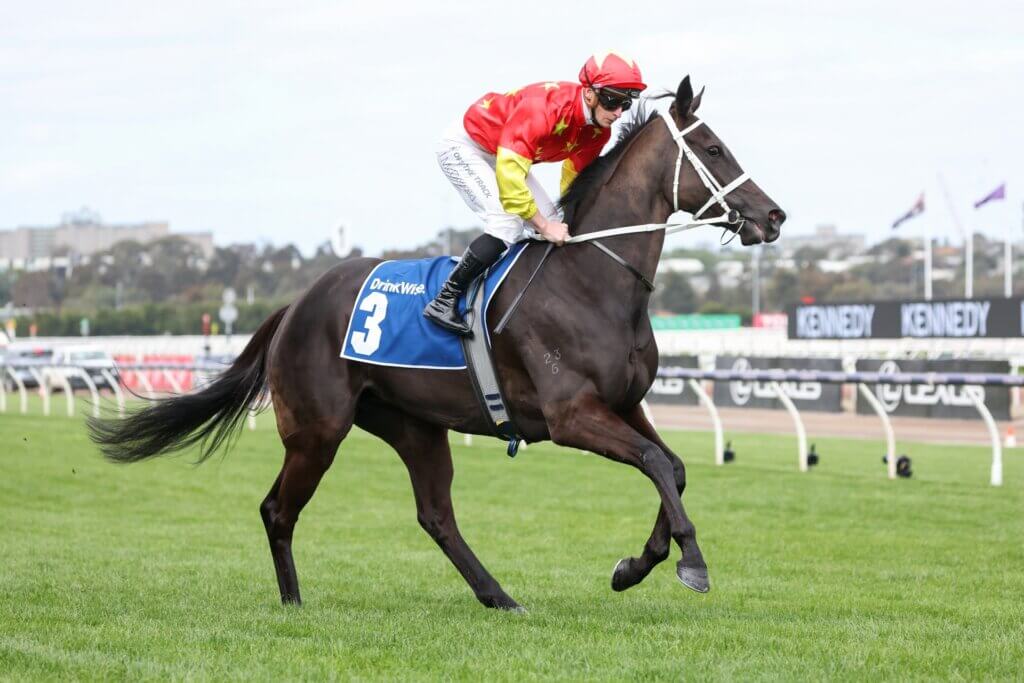
With his best-bred offspring set to materialise over the next couple seasons, there is every reason to think Karakontie will continue to demonstrate to the U.S. breeding industry why investing in Japanese bloodlines could be integral toward maintaining their powerhouse status. Some, like Mike Repole, have already gotten the memo. The effusive owner – who has campaigned such champions as Uncle Mo, Forte, and Fierceness – was on the scene this year shopping the Japanese public sales.
Whenever there is a whirlwind of activity around him, Karakontie can’t help but try to insert himself into the goings on. It is a trait that, while testing at times for those in his orbit, has allowed him to stamp himself as a torchbearer in a market that can be notoriously unforgiving to those that don’t fit the desired mold.
“When we talk about Sunday Silence being the premiere sire over in Japan and the follow of course would be Deep Impact…I would have thought someone at some point in time would have made an effort to get more of their offspring to come over here,” Norton said. “But the Japanese people, if you have a good one, they’re not going to let them go and they want to keep them for their own sire program, and I can’t blame them for that.
“But Karakontie is definitely on the upswing.”

